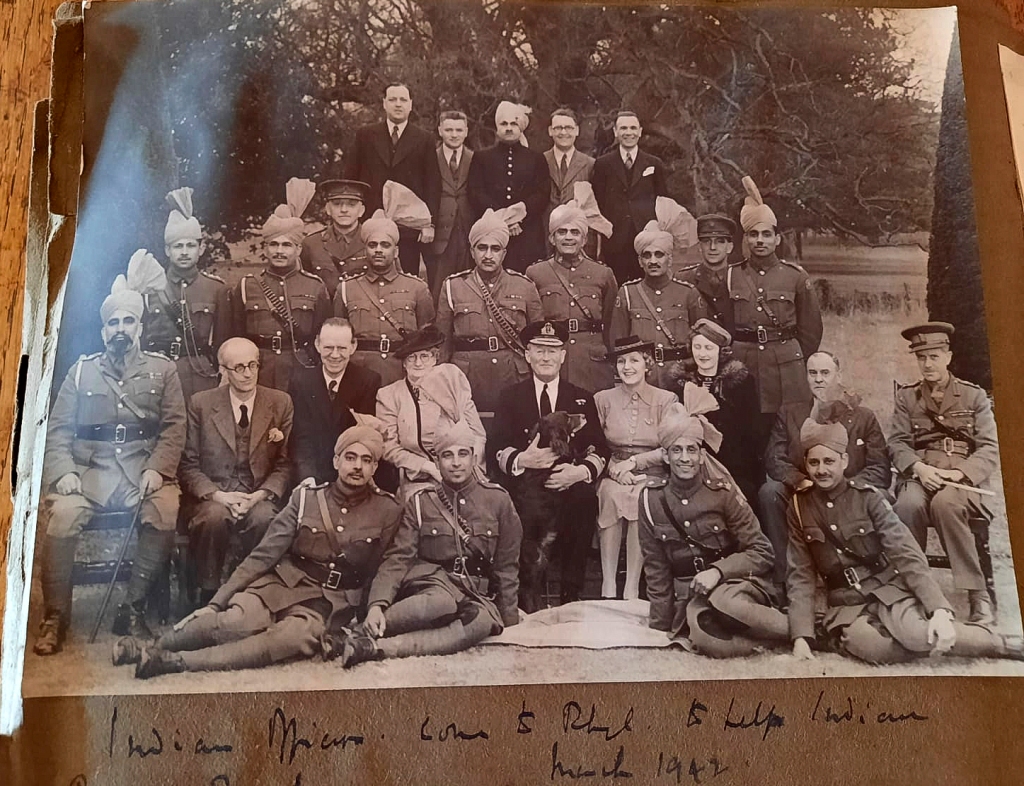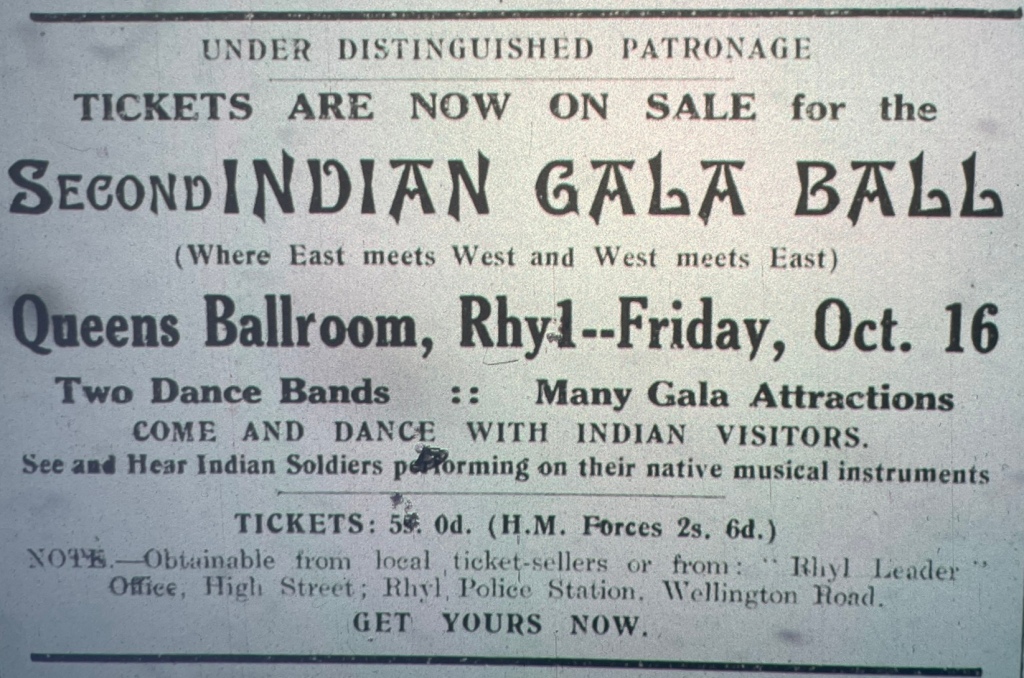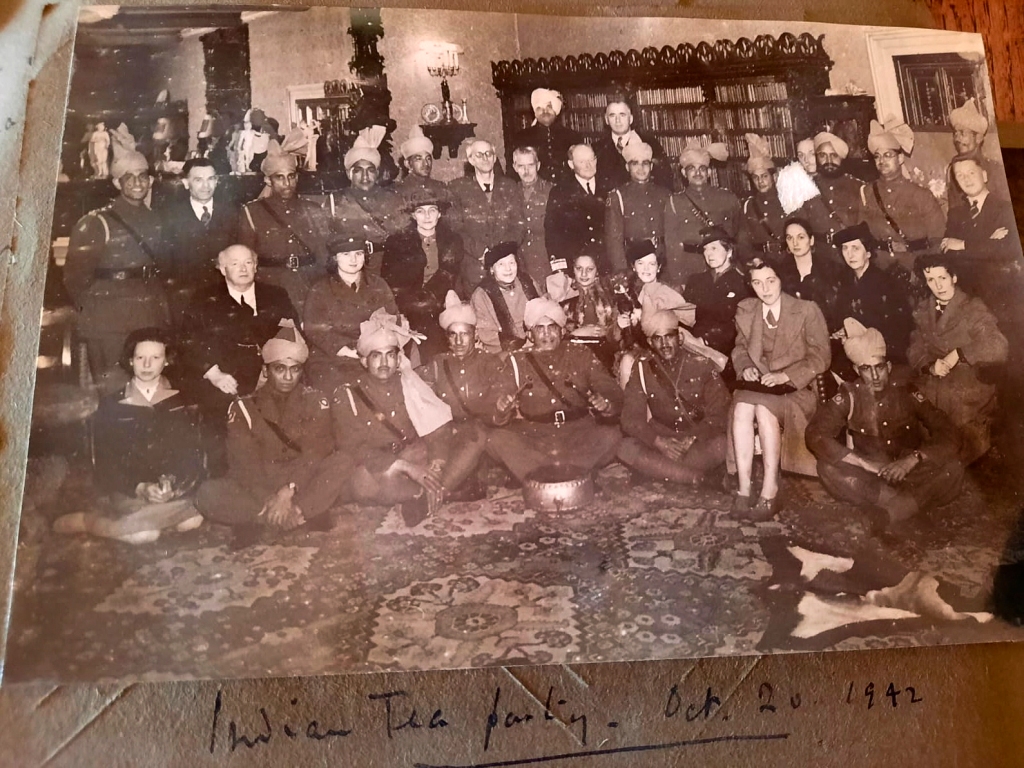Rhyl History Club recently received an e-mail from Abdul-Azim Ahmed, the Deputy Director of the Islam-UK research centre based in Cardiff. He is exploring the history of Muslims in Wales, one of whom is the Architect Sheikh Abdul Hamid who was based in Rhyl during World War 2 with the Ministry of Works.
The Ministry of Works was a department of the UK Government formed in 1940 to organise the requisitioning of property for wartime use.
Whilst in Rhyl during the war Sheikh Abdul-Hamid took an active part in our town’s civic life, organising charity events for the Red Cross and St. John’s Prisoner of War Fund. He also organised Eid prayers in Prestatyn in 1941, where the guest of honour was the dethroned Monarch of Persia.
Sheikh Abdul-Hamid was also the Hon. organiser of Indian Festivities in Rhyl in March and October 1942, which included Indian Gala Balls at the Queen’s Hotel.
Whilst we were investigating Sheikh Abdul-Hamid’s time in Rhyl, a bigger story emerged. Who were the Indian visitors that visited Rhyl in 1942? Research revealed that they were part of the “Indian Contingent” – the forgotten Muslim soldiers of Dunkirk. They were three hundred Indian soldiers, part of the British Expeditionary Force, who, in May 1940, embarked for England from Dunkirk in the dead of night and spent the remainder of the war serving in Britain. This is fascinating history, to learn more click here.
During the visit to Rhyl in March the Indian visitors were entertained to tea at Bodrhyddan Hall by Rear Admiral R. Rowley Conwy. This was followed by a Gala Ball in Rhyl in aid of the Indian Troops Comfort Fund.

In October they were welcomed at Rhyl Railway Station by Rhyl Town Councillors, Sheikh Abdul-Hamid and other well wishers. They had refreshments at Robins’ Corner Cafe, were conducted to various Rhyl homes which were providing their accommodation, and had lunch at the Sports Cafe on the East Parade. The visitors then attended the first performance at the Queen’s Theatre, followed by a visit to the home of Sheikh Abdul-Hamid at Sandy Cove where they enjoyed an Indian supper of curry, rice and unleavened bread – “a thoughtful and kindly gesture on the part of Sheikh Abdul Hamid” reported the Rhyl Journal. The climax of the visit was the second Indian Gala Ball in the evening, where there was record attendance at the Queen’s Ballroom with about 700 spectators watching from the balcony.

Here is an extract from the book “The Indian Contingent” by Ghee Bowman“:
“On 16th October 1942, a party of twenty Officers and VCOs was invited to the seaside town of Rhyl for a trip that included an overnight stay, all designed as a fundraiser for the ICF. According to Jemadar A.G. Khan, as they arrived ‘the clouds scattered and the sun came up… we were able to see the whole city blooming and glowing” Sunny Rhyl!
It continues ” They were taken for tea at the house of the Lord Lieutenant of Flintshire. Admiral R. G. Rowley-Conwy, where they were, of course, photographed”

After their visit to Rhyl Sheikh Abdul-Hamid received a letter from the Contingent Welfare Officer, Captain Dr. Chandra, a portion of which is repeated here:
“I really believe that there has not been one single occasion comparable to this visit to Rhyl. It has not only eclipsed our last visit to Rhyl, but also all other visits we have made to other parts of Britain”.
Tragically, Sheikh Abdul-Hamid was killed by “enemy action” in the South of England during the V1 campaign in June 1944, aged 44. He is buried in Cardiff.
with many thanks to Abdul-Azim Ahmed and the Islam in Wales project https://www.cardiff.ac.uk/research/explore/find-a-project/view/2618934-islam-in-wales
further reading:
https://www.bbc.co.uk/news/world-asia-india-58466527
https://www.dailypost.co.uk/news/north-wales-news/incredible-snowdonia-summer-1000-indian-18606507

Very interesting story. They were certainly given a splendid and deserved welcome. I believe I recognise the gentleman on the extreme right as a young Hadyn H. Williams, a Rhyl Journal reporter and later editor of the paper.
George Owen